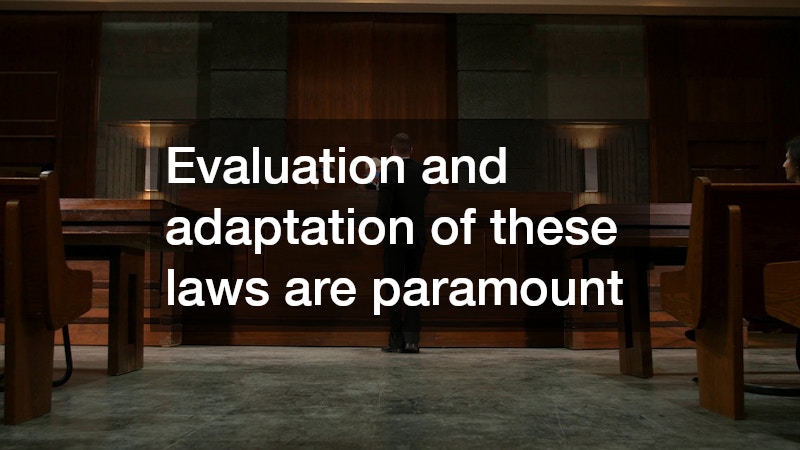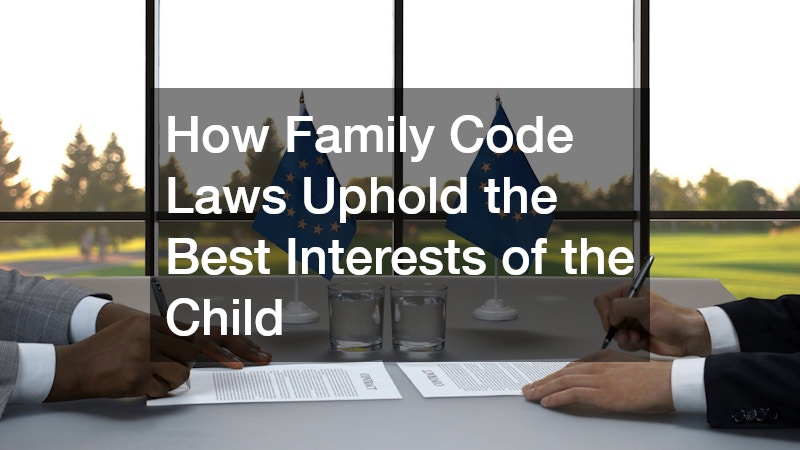
Family code laws play a crucial role in shaping the outcomes of legal proceedings involving children. These laws are established with the primary objective of ensuring that the well-being and optimal development of the child are placed at the forefront of any judicial decision-making process. As societal norms continue to evolve, these laws must also adapt to reflect the changing dynamics and values within families and communities.
Understanding the function and application of family code laws is pivotal in safeguarding the future of children and ensuring that their best interests are always upheld.
What are Family Code Laws?
Family code laws encompass a wide range of legal statutes that regulate familial relationships and resolve disputes concerning family matters. These laws are designed to address issues such as custody arrangements, adoption, child support, and divorce, always keeping the child’s welfare as a guiding principle. At the heart of these laws is the fundamental concept that the interests of the family as a unit should be preserved, and children, as the most vulnerable members, should be protected.
How Do Family Code Laws Define “Best Interests of the Child”?
The term “best interests of the child” is a pivotal consideration in family law legal proceedings, although its definition may vary depending on the jurisdiction. Typically, it involves an assessment of various factors aimed at identifying what arrangements will most effectively promote the child’s welfare and happiness. Key considerations often include the emotional and physical safety of the child, the child’s wishes, and the capacity of each parent or guardian to meet the child’s needs.
In practice, determining the best interests involves looking at a myriad of aspects such as the child’s age, maturity, cultural background, habitual residence, and existing familial bonds. Legal professionals must weigh these factors carefully, often in the presence of psychological and social work professionals, to make informed pronouncements that correspond with each child’s unique circumstances. The aim is to craft solutions that not only address immediate issues but also provide long-term stability and emotional well-being.
What Role Do Courts Play in Upholding These Laws?
Courts are fundamental in upholding family code laws and ensuring that decisions are made in the child’s best interests. Family courts provide a dedicated platform where child custody, guardianship, and other related issues are addressed with precision and sensitivity. Judges and legal personnel are equipped with the tools and protocols necessary to assess each case individually, making impartial decisions grounded in the child’s well-being.
The court’s role extends beyond mere adjudication; it also involves mediation and arbitration efforts to foster amicable resolutions wherever possible. This approach recognizes that lengthy legal battles may not serve the child’s best interests, and in many cases, a peaceful agreement between parties is preferable. Therefore, family courts are both a guardian of legal standards and a supporter of reconciliatory efforts.
Are There Specific Case Studies That Highlight Their Impact?
A comprehensive examination of family law often brings to light numerous case studies that underscore the principles and impact of these laws. For instance, high-profile custody battles have historically illustrated how courts diligently apply the concept of the child’s best interests to determine custody; the cases highlight intricate evaluations involving familial bonds and parental capabilities.
In some instances, adoption cases have shed light on how family code laws function to protect a child’s right to stable and secure family life. These cases frequently involve in-depth analyses to determine whether adoption aligns with a child’s long-term needs, sometimes even facilitating arrangements that recognize alternative but equally nurturing family structures.
How Do Family Code Laws Evolve to Meet Changing Social Norms?
As society evolves, so too must the frameworks that govern it, including family code laws. Changing social norms around gender roles, marriage, and family life necessitate periodic updates to these laws to ensure continued relevance. The shift towards recognizing diverse family structures, such as those involving same-sex couples or non-traditional co-parenting arrangements, reflects the dynamic landscape that modern family laws must address.
Legislative amendments and reforms are routinely enacted to align family code laws with contemporary values. These updates could include redefining parental rights, revising custody guidelines to be more inclusive, or enhancing measures to empower children to voice their preferences in legal matters affecting them. This adaptability ensures the legislation remains equitable and just, providing all children with a fair chance at favorable outcomes, irrespective of their familial backgrounds.
Family code laws serve as an essential mechanism for safeguarding the welfare and development of children within the legal system. These laws, with a steadfast commitment to the child’s best interests, are pivotal in resolving family disputes and ensuring that decisions reflect the evolving fabric of society. Continued evaluation and adaptation of these laws are paramount to accommodate changing social norms and uphold the legacy of safeguarding the child’s emotional, physical, and psychological safety. In a world where family dynamics are increasingly diverse and complex, the role of family code laws in providing clarity, protection, and justice remains as vital as ever.

